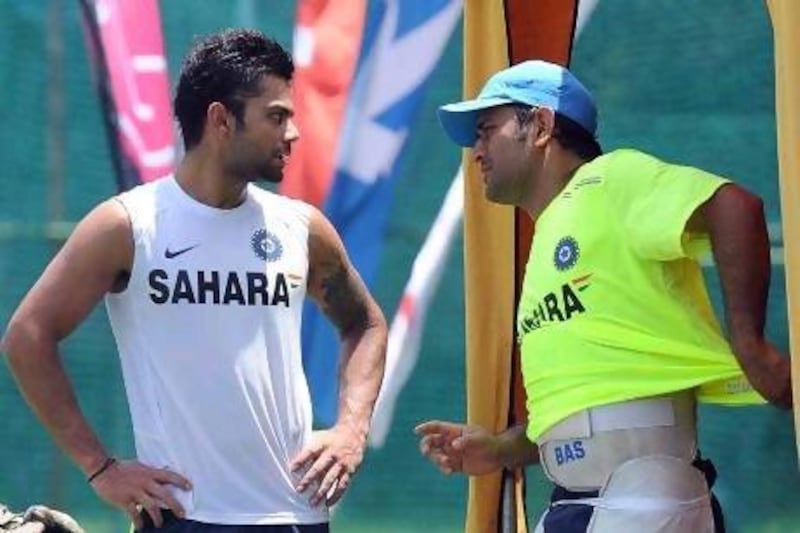To realise just how important the captaincy is to a cricket team, you do not necessarily need to be aware of what Douglas Jardine did with leg theory, or of how Clive Lloyd got those from vastly different Caribbean backgrounds to rally around the West Indies.
Just consider this. There would have been no Ian Botham's Ashes in 1981 if the man himself had led England for the whole series against Australia, instead of relinquishing the job after two Tests in favour of Mike Brearley.
There might not have been two decades of Australian dominance if a less flint-hard individual than Allan Border had been entrusted with picking up the pieces after the debacles of the mid-1980s.
While there are conflicting opinions on the value of a coach – Ian Chappell, who led Australia with great flair in his time, is not a fan of the concept – you generally get unanimous agreement on the fact a team's fortunes depend largely on the man at the helm.
It may not be an overly glamorous job, but it is not a ceremonial one.
The quarterback is the cynosure of all eyes in an American football game, but in reality, he is merely executing the plays that the coach calls from the sidelines.
In cricket, the coach is merely a facilitator for a captain who takes the big decisions.
While things are not quite as bleak as they were for Australia when Border took over, it is clear that Indian cricket is on the cusp of a new era.
Stalwarts have left the stage and for the first time since he took over as the captain in all three formats four years ago, questions are being asked of MS Dhoni's leadership qualities.
Think back to April 2011, and the world was very different.
A mighty swing of his bat had sealed a first World Cup win since 1983. India sat proudly atop the Test rankings, and the Chennai Super Kings, his Indian Premier League franchise, held both the Indian Premier League and Champions League titles. His middle name could have been Midas.
Since then, whatever could go wrong has. The Test side was humiliated in England and Australia. The one-day team failed to make the finals of a tri-nation tournament in Australia and the Asia Cup. The Twenty20 crew did not qualify for the semi-finals at the recent World Twenty20, the third consecutive time that India have fallen short at the global event.
The downturn, not surprisingly, has coincided with a marked decline in output from those who were once cornerstones of the side.
Virender Sehwag and Gautam Gambhir no longer forge immense partnerships at the top of the order. Sachin Tendulkar has not been anything like as prolific as he was during his 2008 to 2011 Indian summer.
Zaheer Khan has not provided the breakthroughs as often, and Dhoni himself has had a wretched year with the bat.
The feeling that the core of the side might have left its best years behind is inescapable.
A few days ago, a Hindi newspaper carried a front-page story that suggested that the board was toying with the idea of different captains for different formats. That is hardly a revolutionary thought.
Adam Hollioake led an English one-day side to victory at Sharjah in 1998, a time when he was nowhere near certain of a place in the Test XI.
In 2002, Australia's selectors drew a line under Steve Waugh's leadership of the one-day side. It was Ricky Ponting who led them to World Cup glory a year later, even though he would have to wait another 10 months to take over the Test captaincy.
Having two very different individuals in charge certainly did not hurt Australian prospects. The slump, when it eventually came, had everything to do with a golden generation of players – Shane Warne, Glenn McGrath, Damien Martyn and Justin Langer – saying goodbye in quick succession.
These days, most countries seem to favour split leadership.
England have Alastair Cook leading the Test and 50-over teams, while Stuart Broad captains the Twenty20 side.
For South Africa, AB de Villiers is the man in charge for all limited-overs cricket.
Australia had George Bailey captaining at the World Twenty20, while Pakistan relied on Mohammad Hafeez rather than Misbah-ul-Haq, who heads the Test side.
Dhoni has won both 20 and 50-over World Cups, but recent performances have revealed the need for wholesale changes to the limited-overs squads.
When India won the inaugural World Twenty20 in 2007, it was with a largely callow team, young men who scampered between wickets and generally fielded brilliantly. That spirit of renewal has to be embraced again, and the best option to guide a new generation is Virat Kohli. That he once led India to an Under 19 World Cup is not important, not when compared to the maturity and composure with which he has played during the course of a tumultuous year for the side.
Dhoni can continue to lead the Test team for now, but as Australia recognised a decade ago, the time is nigh for a succession plan to be put in place.
It will grate with certain icons, especially those nursing captaincy ambitions, but if they do not fall in line, they need to be cast aside. Indian cricket has little to gain from yesterday's heroes.
Follow us
[ @SprtNationalUAE ]





